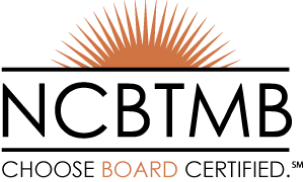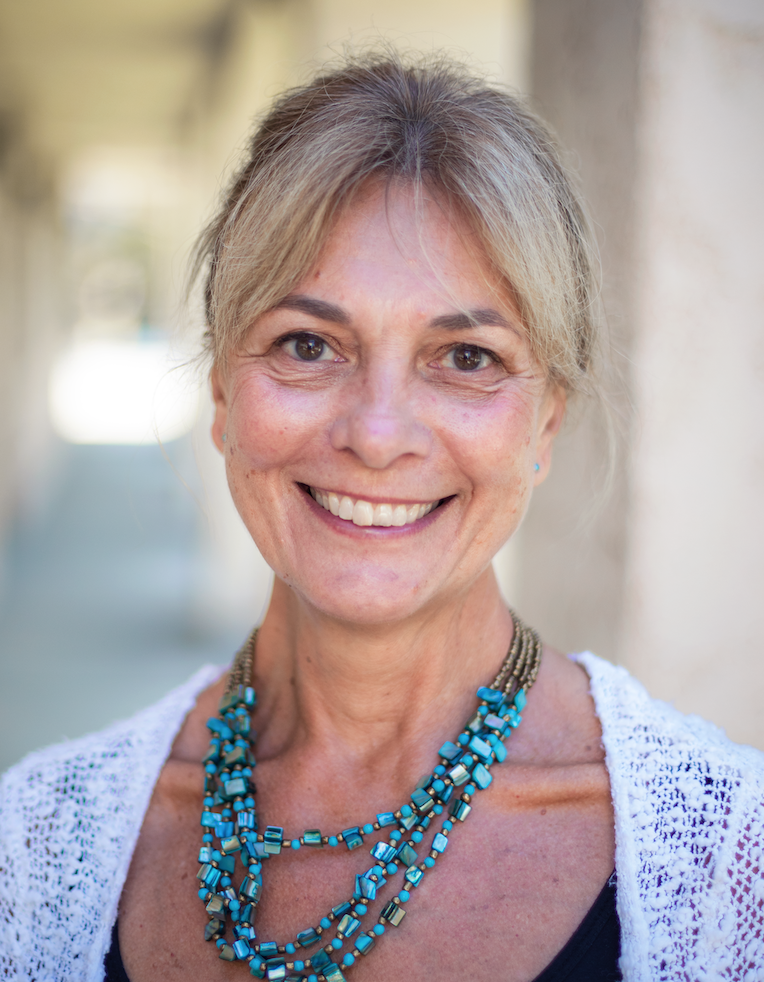Please provide your full name, current location, and current job title.
My name is Luann Drolc Fortune. I currently reside in Fort Myers, FL and work as a massage therapist and faculty member at Saybrook University (see saybrook.edu; I am with the College of Integrative Medicine and Health Sciences).
Provide one fun fact about you.
I am an academic who still practices massage therapy, even while I teach graduate students about the research that supports massage for health and wellness. Until the pandemic, I mostly offered my massage skills pro bono for community service and saw a small collection of clients privately.
What are your hobbies?
My work is my greatest joy, so it is all intertwined, my teaching, writing, research, and the practice I still do. Outside of massage and wellness, I love to travel, bike and kayak when at home in Florida, serve on sea turtle patrol to help protect this beautiful, endangered species.
How did you discover the massage therapy profession? What motivated you to pursue massage therapy as a career?
After college, my work was in for-profit business, and I started to use massage therapy for my own needs. One day, on my massage therapist’s table, I realized I could do something else. And I wanted to do this. I wanted to make massage a career because I was inspired by the healing potential for others, and also saw it offering a life-style that would let me raise a family and live in healthy, autonomous ways. I was right.
How did you develop your passion?
As a beginner student at PMTI in Washington DC over 30 yrs ago, I discovered a deep love for doing the work. At the table, I found connection, resonance with my client, an inner calm, and awareness and focus unlike anything I had every before experienced. It was pure joy, reinforced by feedback that I was becoming skillful. I established my private practice in DC and for 2 decades served private clients, large scale seated massage operations, and a host of workshops, classes, and community engagements.
How has your massage career evolved?
My skills in business helped prepare me for establishing a private practice, but also equipped me to become an advocate when my local massage community needed to organize and pursue licensing to protect our right to work. I quickly learned to become an advocate, then a regulator when licensing became a reality. When I finished massage school, only 7 states licensed massage therapists. Today over 45 have licensing; I am proud to have been part of that movement.
I also returned to my massage school, PMTI as an instructor. There I enjoyed teaching in the professional program, and also the community workshops. I became certified in infant and pregnancy massage and taught in various hospitals and programs in the region. So many questions arose from my teaching and practice, I determined to return to graduate school and learn what the research was finding. There were no advanced degrees in massage therapy; I earned a doctorate in human development and my research has focused on the work of massage therapists. Today, I am a full time academic, teaching for Saybrook University in the graduate programs in Mind-body Medicine. I have developed and teach courses that include the massage therapy research I contributed to: massage therapy is an integrative healthcare intervention.
When did you first become NCBTMB Certified?
Sorry, but this is a complicated answer: I took one of the first offerings of the national exam, back in the early 1990s, before NCBTMB was structured as it is now. I was actually on an advisor committee and participated in meetings around 2005 to help create the next stage of the NCBTMB position as a stakeholder in massage therapy. When Board certification was first offered under its present form, I became certified.
Why did you elect to become NCBTMB Certified?
Initially, passing the original national exam was an important progression in professionalization. I did a research student on just this (Fortune & Gillespie, 2010). Although there are downsides to professionalization, the movement towards integrative health, including massage therapy, demands higher, standard certifications and credentials.
Fortune, L. D., & Gillespie, E. (2010). The influence of practice standards on massage therapists’ work experience: a phenomenological pilot study. International journal of therapeutic massage & bodywork, 3(3), 5.
Why have you maintained your NCBTMB Certification all these years?
It is a demonstration of my commitment to higher standards and professionalization. I am an NCBTMB approved education provider.
How has NCBTMB elevated your career? What doors did it open for you?
Two ways: As a credential, it increases my credibility as a practitioner-scholar. Also, it has allowed me greater ease to establish licensing in different locations/states.
What would you say to a fellow massage therapist contemplating Board Certification?
Dear fellow therapists: Entry level requirements are comparatively low to become licensed as a massage therapist. How do you want to elevate the practice? This is how you can distinguish yourself in our field.
How has your practice and/or employment been affected by COVID-19?
My practice has disappeared. I am able to continue my work teaching and am now coordinating a program at my university for public offerings of self-care programs. I am providing guided instructions on self-massage, based on the evidence demonstrating the critical need for touch. With one of my doctoral students, I recently provided a workshop on self-massage. The video is available to the public: The Recording is now available. Click here
If you are not working or unable to work during the pandemic, what are you doing during this time to prepare yourself for future work?
I am busier than ever! I have also taken a couple CE courses and am exploring developing CE courses that I would apply to NCBTMB for approval.
What would you suggest a fellow massage therapist do during this time to prepare for future success?
Think of this as a time to move forward, not just waiting until things “get back to normal.” There will be a new normal. Massage and touch were never more needed.
—
To apply for Board Certification, click here.

